Financial crime prevention – Przeciwdziałanie przestępczości finansowej
Planowane rozpoczęcie
Cena
Czas trwania
Tryb nauki - stan na 27.11.25
STUDIA PODYPLOMOWE
Jednym z najważniejszych współczesnych wyzwań jest zwalczanie przestępczości finansowej. Banki, firmy ubezpieczeniowe, brokerzy usług finansowych, fundusze inwestycyjne oraz inne podmioty (m.in. z sektora fintech) są wykorzystywane przez przestępców w celu między innymi finansowania działalności terrorystycznej, prania brudnych pieniędzy, oszustw finansowych, czerpania korzyści materialnych z handlu ludźmi i zagrożonymi gatunkami roślin oraz zwierząt.
Partnerzy: ABSL, Nordea, Santander, LSEG, E&Y
One of the most important contemporary challenges is combating financial crime. Banks, insurance companies, financial services brokers, investment funds, and other entities (including those in the fintech sector) are exploited by criminals to finance terrorist activities, engage in money laundering, financial fraud, and profit from human trafficking and the trafficking of endangered plant and animal species.
Financial crime prevention – Przeciwdziałanie przestępczości finansowej
Informacje o kierunku
English version below
Celem studium jest przekazanie uczestnikom niezbędnej wiedzy umożliwiającej przygotowanie oraz wdrożenie modeli zarządzania ryzykiem przestępczości finansowej w różnych rodzajach instytucji oraz zapoznanie się z uregulowaniami prawnymi z tego obszaru.
Studia skierowane są do:
- osób zainteresowanych rozpoczęciem kariery w sektorze usług finansowych,
- pracowników sektora usług finansowych pragnących poszerzyć kwalifikacje oraz umiejętności zarządzania ryzykami przestępczości finansowej,
- osób zainteresowanych świadczeniem usług w obszarze zarządzania ryzykiem przestępczości finansowej w ramach doradztwa (consultingu) oraz w sektorze technologicznym w ramach projektów wspierających zarządzanie ryzykami przestępczości finansowej,
- przedsiębiorców działających lub zamierzających rozpocząć działalność w sektorze nowoczesnych usług finansowych (fintech, regtech), pragnących zdobyć wiedzę z zakresu przepisów dotyczących zarządzania ryzykami przestępczości finansowej.
The aim of the course is to provide participants with the necessary knowledge to develop and implement financial crime risk management models in various types of institutions and to familiarize themselves with the legal regulations in this area.
The course is intended for:
- individuals interested in pursuing a career in the financial services sector,
- financial services sector employees wishing to expand their qualifications and skills in managing financial crime risks,
- individuals interested in providing financial crime risk management services within advisory (consulting) and in the technology sector as part of projects supporting financial crime risk management,
- entrepreneurs operating or intending to start a business in the modern financial services sector (fintech, regtech) who wish to acquire knowledge of the regulations governing financial crime risk management.
Market of financial products and services
- Introduction to the financial products market.
- Traditional financial products.
- Derivatives in financial markets.
- Innovative financial products (structured products, ETFs, cryptocurrencies).
- Introduction to the financial services market.
- Financial service providers (banks, neobanks, insurance companies, parabanks).
- Customers and financial services.
- Overview of financial services and how they are provided.
- Trends in the financial services market (e.g., blockchain).
- Supervisory institutions in the market for financial products and services.
Krystian Zawadzki
8h
Ethics in finance
- Ethics in the practice of finance.
- Standards of ethics in finance (based on the principles of the CFA Institute): professionalism, integrity in financial markets, obligations to clients and employers, standards for preparing analyses and recommendations, and conflicts of interest.
- Best practices and abuses: case studies.
- Ethical standards in the Polish financial sector.
Adam Marszk
4h
Financial Services Industry – Anti-Financial Crime Frameworks and Operating Models
- Introduction to financial crime.
- Counteracting financial crime - global and local point of view.
- Regulatory landscape.
- The concept of operating models.
- Operational models for counteracting financial crime in the financial services industry.
- 3 lines of defence.
- Main roles and responsibilities.
- Main processes.
Artur Preus
12h
Introduction: Anti-Money Laundering (AML) & Introduction: Pecunia Non Olet
Key terms
- Understanding ML & its impact on global FI.
- 3 stages of ML.
- Methods of ML.
Risk assessment in AML
- Identifying & evaluating risks associated with ML in a financial context.
- New payment products & services (virtual currencies, crypto, prepaid cards, mobile payments, etc.).
AML Compliance Programs
- Elements of AML/CFT program in FI
- Development & introduction within FI
AML Investigation & Reporting
- Explanation of investigation process.
- Global cooperation in AML.
Technologies supporting AML processes.
- Role of Technology & Data Analytics.
- Overview of the tech tools supporting AML processes.
- Emerging technologies (blockchain, AI, ML) enhancing AML efforts.
The introduction to money laundering, including the history of money with interesting and practical examples.
- What is a financial crime?
- Historical context: why do we undertake measures to counteract money laundering and terrorist financing?
- The evolution of money; the current forms of payment.
- Money laundering - the concept & its stages (placement, layering, integration).
- Financial and non-financial institutions generating the risk of money laundering and terrorist financing (e.g., trusts, casinos, insurers).
- Presentation of most recent examples illustrating the negative impact and/or insufficient measures taken (or the lack of them) to counteract money laundering and terrorist financing (e.g., high-profile terrorist attacks).
- Case Study: How do you launder money in the best and most efficient way possible?
- Distinguishing ML and TF: Exploring the difference between money laundering and terrorist financing. Introducing the concept of “reverse” money laundering.
- Most recent cases (Sam Bankman-Fried, fin-influencers).
Kamil Orzoł
16h
AML Risk Management
- Focusing on identifying, assessing, and mitigating risks related to money laundering within financial systems and organizations.
- Understanding the risk exposure of the organization.
- Identifying high-risk areas, such as customer types, products, and geographic regions.
- Developing risk profiles for different scenarios. (PEPs, Hawalas, Pyramids etc.).
- Suspicious Activity Reporting (SAR): - Document and report suspicious transactions.
- Risk-Based Approach.
- Mitigation factors.
Alicja Zbronska
8h
AML Regulations and Legal Basis
Comprehensive framework of laws, regulations, and procedures designed to prevent criminals from disguising illegally obtained funds as legitimate income.
- AML/CFT - international regulations - FATF, Wolfsberg Group, Egmont Group, other international organizations.
- AML/CFT - EU regulations - AML Directives, including primarily the current regulations (IV,V Directives, Directive 2018/1673), Regulation on information accompanying money transfers and certain crypto-actives.
- AML/CFT - domestic regulations - : Anti-Money Laundering and Countering the Financing of Terrorism Act.
- AML Package - upcoming changes in the AML/CFT area - Single Rulebook Regulation, AMLA Regulation, 6th Directive.
12h
Know Your Customer
KYC Concept
- Introduction to KYC.
- Why KYC is needed?
- Client Due Diligence.
- What is CDD.
- Elements of CDD.
- How and how often to conduct CDD (e.g. periodic reviews).
Enhanced Due Diligence for high-risk customers
- What is EDD, why EDD is required?
- Customer relationships that require EDD.
- EDD measures.
Customer Identification and Verification
Short case study (given examples of different client types incl. high risk and asked which measures are required for which customer groups)
Risk factors in KYC
Identification and analysis of customer’s risk
ID & V of a customer
PEP customers
Sanctions
Alert lifecycle in the banking system
Case study: on the basis of presented event(s), analyse the event(s) and decide which CDD action should be applied.
The role of the Polish Financial Supervision Authority and similar institutions in the European banking system. Why do they exist? High-profile examples (e.g., Amber Gold)
The elements of practical CDD on the basis of a limited liability company / corporation; the analysis of publicly available information & documents (e.g., corporate structure, annual reports, UBOs, directors, screening, source of wealth, source of funds, sanctions).
Ownership structure; UBO; IBO.
Case study: analysing a selected company / corporation using public registers and publicly available information (e.g. ownership structure, directors, UBOs, sanctions, screening, annual reports).
What is risk-based approach in banking?
- The methodology of analysing customers subjected to risk-based approach; the level of risk (low / medium / high).
- Risk pyramid.
- Prohibited & restricted countries.
- Requirements for a customer depending on the risk level applied. Examples of natural persons/ companies & elements which increase the risk level.
Case study: using the examples provided and analysing the risk level that would be potentially applied to a customer.
Magdalena Ciszewska
32h
Entity Types and Their Decision Makers
- Characteristics of Legal Forms: Understanding the impact of legal structures, such as limited liability companies or trusts, on money laundering (ML) and terrorist financing (TF) risks.
- Exploring Financial Corporate Information: Techniques for analysing financial statements and corporate documents to extract essential Know Your Customer (KYC) information.
- Ultimate Beneficial Owner (UBO) Concept: Navigating through intricate ownership structures to identify the UBOs.
- Sources of KYC Information: A practical guide on where and how to access reliable KYC data.
- Approaching Complex Entity Types: Strategies for dealing with investment funds and other multifaceted entities.
- Entity Risk Factors: Examining risks associated with bearer shares, nominees, shell companies, and state-owned entities.
Jan Westphal
8h
Data Gathering, Analysis and Adverse Media Screening
- Get to know your sources: introduction to most common types of online sources and online availability of the documents used for building a KYC Report.
- Identification of key registration and regulation information depending on corporate’s legal form and nature of business. Including: national corporate registries, financial and special business sector regulators, stock exchanges and reporting obligations set by the above.
- Identification and verification of people with significant control, directors and beneficial owners (both intermediate and ultimate).
- Initial assessment of customer risk and rising Red Flags (complex ownership, PEP, SOE, Shell Corp, Bearer Shares, Nominees, Correspondent Banking).
- Assessing credibility of secondary sources, definition of a golden source.
- Adverse Media Screening:
- 6AMLD Money Laundering 22 Predicate Offenses.
- Usage of keywords, search strings within Google search and World-Check One (LSEG product).
- Third-party AMS solution providers
Julia Lotkowska
8h
Red Flags of Financial Crimes in Everyday KYC Practice
Presenting specific examples of red flags that we encounter in our daily work as AML specialists, when creating KYC profiles in personal banking (e.g. High Risk Third Countries, Gambling activities, Terrorist financing, Money transmitters, Scams, Vulnerability of specific products and services, Tax evasion). Presenting the appropriate risk base approach for KYC profiling. Paying attention to the assessment of risk factors. Investigation and assessment what should be treated as a red flag in the KYC profile and transactions monitoring. Then presenting specific examples of customer profiles that have experienced the above red flags. Analysis of what specific situations we should consider as risky and what we can mitigate. Actions required when an AML specialist detects red flags that pose a specific risk of financial crime.
HRTC
Gambling activities
Terrorist financing
Money transmitters and new payment methods
Retailers of high-value goods
Scams
Vulnerability of specific products and services
Tax evasion
Natalia Jacuniak-Strychalska
Agnieszka Dominguez-Gałąska
16h
Workshop on the KYC process
Topics to be covered during the workshop:
Based on fictional onboarding requests for Individual and Corporate Clients, practice:
- performing initial risk assessment,
- identifying red flags,
- deciding on the next steps of the due diligence.
Using available external sources (e.g., company registries, stock exchange websites, "customer" websites), collect basic information on selected legal entities from various jurisdictions: legal name, previous names, date of incorporation/registration, company registration number, registration address, status, persons with effective control, customer base, nature of business etc.
Client Due Diligence for Individual Clients - discussing the challenges of remote ID document authentication. Based on real and AI-generated photos, discussing how to verify the authenticity of ID documents.
Discussing the main principles of an ownership structure analysis, understanding that the approach regarding ownership thresholds may differ from institution to institution. Based on fictional examples (various legal structures), practice analysing ownership structure:
- calculating aggregated %,
- identifying IBO and UBO.
Discussing name screening principles: evaluation of sources’ credibility, assessment of hits' materiality, methods of hits' mitigation. Based on real adverse media examples, practice assessing the negative news (sources, materiality, potential mitigating factors, potential impact on customer risk).
Discussing PEP screening process. Based on fictional PEP examples, practice applying EDD measures. Debating with the participants what additional DD measures should be taken to mitigate the heightened customer risk.
Practicing final risk classification based on fictional examples. The examples will include comprehensive customer profiles; the task for the participants would be to decide first, on retaining or offboarding the customer, and secondly, on a risk rating.
Martin David
8h
Transaction Monitoring
Essential aspects related to detecting and preventing suspicious financial activities.
- Introduction to Transaction Monitoring, the purpose and importance of TM.
- Understanding risk assessment and how it informs monitoring strategies.
- Various transaction types (e.g., wire transfers, cash deposits, electronic funds transfers).
- Red Flags and Suspicious Activity Indicators, recognising warning signs (e.g., unusual frequency, large amounts, structuring).
- Record Keeping and Documentation, record retention requirements.
Alicja Zbronska
Aleksandra Budzyńska
8h
Real-life TM case study review and analysis workshop
The workshops would be conducted by working together step-by-step with an experienced investigator, from the generation of the alert to formulating suspicions of a ML typology.
Topics to be covered:
- Review of the most typical scenarios involving cash transactions, money mules, rapid movements of funds, transit accounts, high risk geographies, etc.
- Most common scenarios for retail customers.
- Abuse of offshore shell structures for money laundering.
- Fictitious business transactions.
- Indicators of UBO concealment.
- Tax evasion schemes.
- Review of more complex scenarios. including corruption, misappropriation of corporate and public assets.
- Trade Based Money Laundering, etc.
Maciej Murdza
Aleksandra Budzyńska
8h
Sanctions awareness
General information:
Definition of sanctions.
Different divisions of sanctions.
The objectives of sanctions.
Historical background for imposing sanctions.
Local and international sanctions regulations.
Bodies imposing sanctions detailed description of UE, UN and USA.
Forms of sanctions.
FATF and its role.
Sanctions compliance and Customer Sanctions Screening process:
Restrictions on customers.
Restrictions on products and services.
Restrictions based on geography.
Screening of customers/associated parties and third parties.
Consequences of sanctions breaches with examples.
Transaction Sanction Screening process
Introduction to the investigation process.
Operating models.
Screening systems supporting the alert investigation.
Computer-based name matching.
Case studies
Overview of well-known regulatory breaches.
Walkthrough of exemplary potential sanction case.
Natalia Woźniak
Artur Chęcinski
8h
Sanctions evasion techniques and detection methods
- Sanctions unveiled (Historical Context, Objectives, and Varied Types).
- Navigating Sanctions Evasion (Techniques Explored, Two Key Categories, Payment types).
- SDD-Sanctions Due Diligence (KYC-CSS vs SDD, Fortifying Privacy for Beneficial Owners).
- Sanctions Screening (Screening Targets – Customer name screening, Transactions/Payments screening, Trade activity screening, Capital markets screening, Influence of Technology, and consequential effects).
- Sanctions Investigation and Assets Blocking (Process Insights, Identifying/Blocking Payments, Decision Tree for Diverse Matches, Source Review).
Hayk Sakeyan
12h
Cryptoassets
- Legal and technological aspects of cryptoassets, particularly in light of MiCAR regulations.
- The ways in which the most common frauds in the financial market are used in crypto-assets and how to fight against them.
- International cases related to financial pyramids or other types of fraud using cryptoassets.
8h
Virtual currencies and the fight against terrorism and organised crime: New ways of investigations
- Advanced AML/CFT regulation of cryptocurrencies: A detailed consideration of global and local regulations, focused on understanding their impact on cryptocurrency operations.
- AML/CFT risk identification and analysis techniques for cryptocurrency transactions: a practical approach to using analytical tools to detect and monitor suspicious activity.
- Case studies: A set of real-world AML/CFT investigative scenarios that illustrate key strategies for identifying “red flags” and conducting effective analysis.
- Tools for monitoring and analysing blockchain transactions: An overview of the latest technologies to support AML/CFT investigative processes on the blockchain network.
- The AML/CFT Investigation process: A detailed discussion of the steps from identifying suspicion to analysing evidence to reporting and working with regulators.
Robert Pakla
8h
Challenges in the AML & CFT Landscape: Addressing Today’s Issues
Excessive Compliance Costs
Effectiveness of AML & CFT Efforts
Compliance Checkbox Culture
Data Quality Challenges in AML & KYC
Managing False Positives in Screening
Defensive Suspicious Activity Reporting
The “Derisking” Approach and Its Consequences
Deepfakes and Fake News Challenges in Digital Customer Onboarding
Data Privacy vs. Transparency Dilemma
Transitioning from Rule-Based to Risk-Based Approaches
Perpetual KYC and Real-Time Monitoring
Jan Westphal
8h
Final test
A test covering knowledge of all materials of postgraduate study
Błażej Prusak
2h
Total: 194h
Classes are conducted by business practitioners and academic staff of the Faculty of Management and Economics of Gdańsk University of Technology.

Filip Adamczyk
Management Engineer of Technical University of Gdańsk
Anti-Money Laundering expert with eight years of experience across major organizations including Thomson Reuters, PwC and currently Santander. Proven track record in key AML processes such as Know Your Customer, Screening, Transaction Monitoring, and various hybrid ones across the financial crime landscape. Brings hands-on expertise from multiple views – analyst, team leader and subject matter expert. Currently plays a key role in co-developing and delivering internal training modules for operational teams.
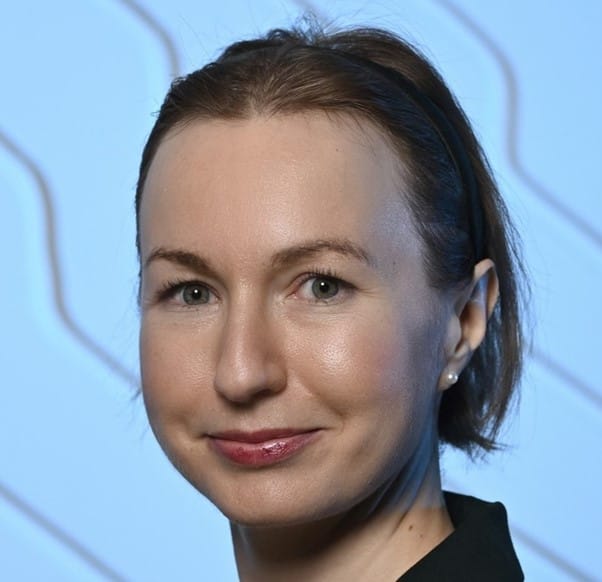
mgr Aleksandra Budzyńska
Senior Consultant at Financial Crime, EY
Holds a master’s degree in law from Uniwersytet SWPS. Has 10 years of experience in AML/TF at various financial institutions in Poland and abroad.
Aleksandra with her legal background, she has specialized in interpreting and road mapping international AML regulations and KYC guidelines thus helping with AML transformations, aligning policies and procedures to improve risk management at various Financial Institutions. Since October 2020, Aleksandra is with Ernst & Young Consulting in Warsaw, Poland, where she excelled mainly in TM related projects: operational ones as a Subject Matter Expert, TM process optimalization, internal audits and framework reviews. In her free time, Aleksandra enjoys skiing & ski touring in winter and cycling through the rest of the year.

Artur Chęciński
Lead FC Process Expert (Transaction Sanctions Screening Process Manager) in GFCP TMSI Process Governance
In Sanctions area since 2015. Investigated over 100 000 SWIFT and SEPA payments during his 4-years’ experience in the Processing Units. Currently - Leading Functional Team of Process Experts in Transaction Sanction Screening, responsible for maintaining operations at global level, improving sanction screening processes and supporting local investigation teams in Poland, Nordics and Estonia.

Magdalena Ciszewska
Operations Manager | Santander Digital Services Poland
Magdalena Ciszewska has been working for the Financial Crime Department at Santander Digital Services Poland since 2020. Firstly, she was engaged in managing due diligence processes for Polish corporates (limited liability companies & joint stock companies) and established one of the first & crucial CDD units at Santander Digital Services Poland. She was also responsible for setting up the Quality Department to ensure compliance with the Bank’s policies & regulations across the retail / business banking / corporate portfolio of Santander UK customers. Magdalena is currently working for the growing business banking department and provides her expertise to improve a customer’s journey for business banking customers, simplify the process of due diligence, amend the procedures to make them more effective and fully compliant with the law.

Martin David
Assistant Manager, Financial Crime, EY Poland
Graduate of Law at the Faculty of Law, Comenius University in Bratislava, Slovakia.
Martin has over 10 years of experience in the field of financial crime, serving as a leader of the AML/Risk team and an expert in managing CDD/KYC policies. Since 2020, he has been associated with EY, focusing on conducting financial crime investigations, including sanction risk assessments. His experience also includes conducting policy gap assessments and their remediation. Martin also has extensive knowledge in Know Your Customer (KYC), Customer Due Diligence (CDD), and Enhanced Customer Due Diligence (EDD), preparing SAR/STR reports, sanction risk assessments, and AML audits.
He is a Certified Anti-Money Laundering Specialist (CAMS) and holds an International Compliance Association (ICA Adv.) certificate.

Agnieszka Dominguez-Gałąska
Junior Team Coordinator, Nordea
Actively involved in KYC processes since almost 3 years, with 6 years of experience in banking sector. Currently Junior Team Coordinator at Nordea in KYC Services, Personal Banking. Performing EDD and OEDD on high risk customers on a daily basis as well as those related to HR3C. Constantly involved in and focused on proces improvements, previously also being a part of Proces Meeting team.
In private life, travelling and roller scating fun. Interested in cultural diversity and soft skills.

mgr Przemysław Gawryś
Graduate of security-related studies at Polish Naval Academy
Experienced analyst, quality checker, trainer, and team leader in AML area with more than 7 years of experience.
Currently a Team Leader leading a team of analysts maintaining population of mostly small and medium enterprises. Active also as a trainer. He earned his experience in practice as a quality checker and case analyst.
His most-satisfied achievement was to support onboarding of more than 60 new analysts with various experience (or no AML experience at all) and creation of a successful Quality Check Team with them.
Privately proud father and enthusiast of geopolitics, science-fiction, and science itself.
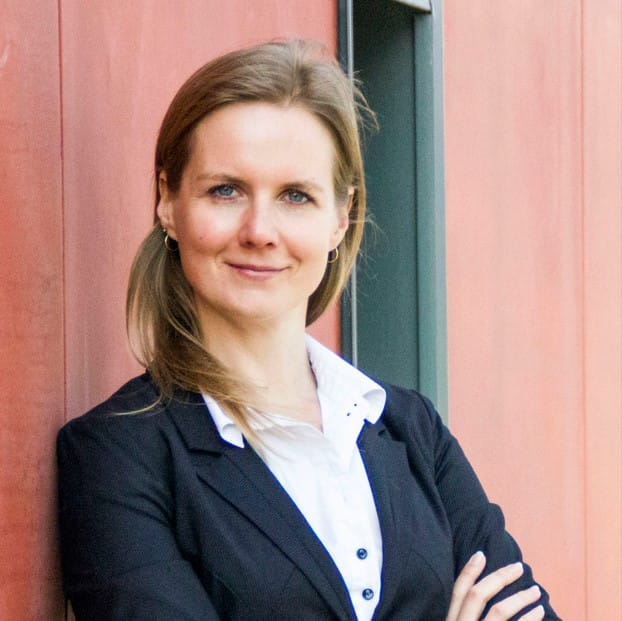
Natalia Jacuniak-Strychalska
Senior KYC Analyst at Nordea
I am a part of the Group Financial Crime Prevention in the banking sector on the Scandinavian market. I work in KYC Services Personal Banking unit. I specialize in KYC profiles of High Risk customers, compliance of AML & CTF policies and measures. Additionally, I am responsible for Risk Management in KYC Services. I completed ICA International Advanced Certificate in Anti Money Laundering.

Julia Lotkowska
A graduate of Ethnolinguistics specialising in English and Japanese from Adam Mickiewicz University in Poznań
Nine years ago pure luck and knowledge of foreign languages got her a first official job as a junior KYC analyst and that started an unexpected, but much welcomed career in financial crime prevention. She gained all her knowledge and expertise through first-hand, practical experience working first as an analyst and later moving to the knowledge and training department. For years she had been focusing on national and supra-national legislations to create working procedures for KYC processes. She specialised in understanding and utilising local online sources in line with official legislations.
Currently she is working as a business analyst in an IT department of a bank focusing on customer risk scoring and building the data model for the new KYC system to be introduced.
In her private time she is an avid toys collector and a crazy cat lady helping local strays.

Adam Marszk
University professor in the Department of Economics at the Faculty of Management and Economics of the Gdańsk University of Technology
Graduate of the Warsaw School of Economics in the field of Finance and Accounting. Habilitated doctor in the field of social sciences, in the discipline of economics and finance. Holds the title of CFA (Chartered Financial Analyst), is a member of CFA Society Poland. Manager and executor in research projects financed by national and international institutions. Main research interests: financial innovations, new technologies in the financial sector, index investing, responsible investing, ethics of the financial sector.
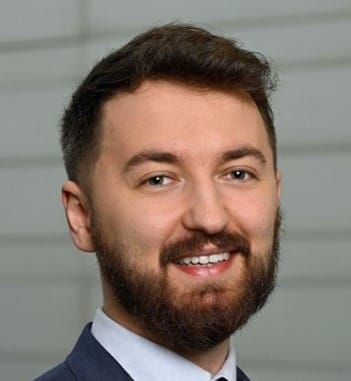
Maciej Murdza
Assistant Manager at Financial Crime, EY
Holds a master’s degree in law from Uniwersytet Jagielloński. Has 10 years of experience in AML/TF at various financial institutions in Poland and abroad.
Maciej has been providing expertise in AML/TF area to financial institutions through different career levels from transaction monitoring analyst, quality assurance expert, KYC consultant, to a member of a MLRO deputy team. Since 2021, he has been part of EY’s Financial Crime team involved in providing consulting services with regards to AML to obliged entities in Poland and abroad. As part of his duties, he was taking part in AML-focused internal audits, conducting holistic reviews and investigations of high risk customers as well as coordinating trainings on AML regulations to companies from the financial sector. In his free time, he reads books, takes long walks with his dog and engages in music as an amateur drummer.

Kamil Orzoł
Graduate of UWM at the Faculty of Mathematics and Computer Science
20+ years associated with IT, including 15+ in the area of banking.
Experience in work as an IT technician, analyst, process manager and various managerial positions. Worked with maintenance and design teams in Polish and international environment.
Implemented projects related to software production, infrastructure implementation, participant of 2 bank mergers. Has practical experience in forming and developing teams, delivering projects/programs, crisis management. Since 2018, he has been working in the area of AML solution development, performing various functions and implementing projects using traditional and agile methods (SAFe).
Optimist-realist, energetic, with enthusiasm for action.
Privately, husband, father, athlete (running, triathlon). Loves traveling and exploring new places. Loves reading.

Robert Pakla
Senior Lead Application Consulting, KYNDRYL Consult Poland - Applications Data and AI Services
Dr. Robert Pakla is a legal scholar with a profound focus on anti-money laundering (AML), new technologies such as artificial intelligence and blockchain, payment systems, and consumer protection in the financial sector. Since 2016, Dr. Pakla has been deeply involved in the banking industry, stepping into managerial roles since 2019 across various financial and finance-supporting entities. Currently, Dr. Pakla is employed at Kyndryl, a leading technology company, where he is instrumental in supporting the financial sector. He plays a key role in providing technological solutions that meet regulatory requirements and offers consultancy on resolving existing challenges within the sector. Dr. Pakla has led several notable projects, each demonstrating his expertise and innovative approach. These include:
Projection about Security Using Blockchain as a Durable Medium for Alior Bank: This project showcases his proficiency in integrating blockchain technology within traditional banking systems, ensuring secure and compliant mediums of communication.
Compliance Analysis for Obtaining Financial Licenses in Europe and the United States for Global Primex: Here, Dr. Pakla'sexpertise was pivotal in navigating the complex regulatory landscapes of Europe and the USA, aiding Global Primex in acquiring necessary financial licenses.
Designing Safety Aspects of a Virtual Currency for PlayWay SA: This project stands out as it involves the only digital currency officially accepted by the Polish Financial Supervision Authority (KNF), highlighting his ability to align technological innovations with stringent regulatory standards.
Designing a Computer System for Detecting Money Laundering and Terrorist Financing for Kyndryl: Demonstrating his core expertise, this system reflects his commitment to combating financial crimes using advanced technological solutions.
Establishment of Virtual Currency AML Policy for ING: This project underscores his strategic role in shaping AML policies, particularly in the emerging domain of virtual currencies.
Dr. Pakla's blend of legal scholarship and practical experience in technology and finance positions him as a leading expert in the convergence of law, technology, and finance. His work not only addresses current industry needs but also sets a precedent for future innovations in the financial sector.
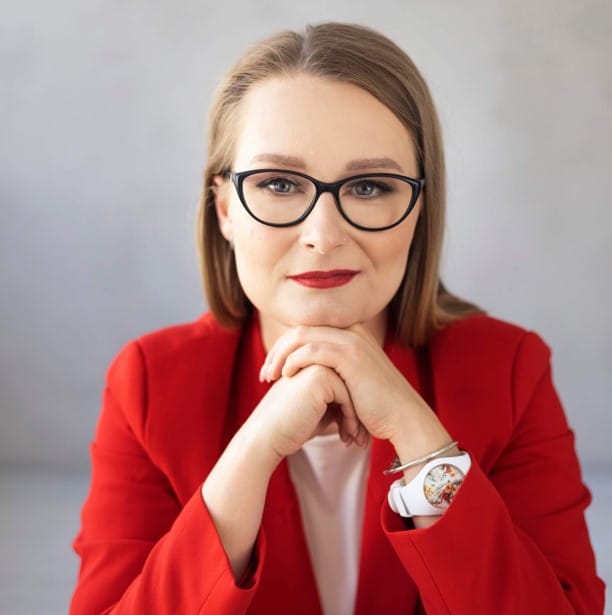
Marta Preś
Senior Team Lead | Santander Digital Services Poland
Holds master’s degree in law from the University of Wrocław with master thesis about money laundering crime. She holds master’s degree as well from the Wroclaw University of Technology. Has 6 years of experience in AML/CTF at various financial institutions.
Marta - with her legal background - has extensive knowledge in Know Your Client and Business procedures (KYC & KYB), Customer Due Diligence (CDD) and Enhanced Due Diligence (EDD) for Individual and Corporate Clients. She was performing KYC, KYB and Due Diligence for all types of risk Clients, both private and entities. Since 2022, she has been cooperating with Santander as Senior Team Leader firstly with CDD teams and currently with OBE and Exit Teams. In her job, she is focusing on extending her knowledge in AML area.
In her private time, she loves to read books and enjoys running and trail trainings. She is a big fun of recirculated fashion.

Artur Preus
Head of Business Design, SMBC
Artur Preus is a doctor of social sciences, a member of ACAMS and ICA - leading international organizations setting standards for combating financial crime. He is an experienced practitioner who has been involved in the transformation of operational models for combating financial crime in the financial products and services sector for many years. He gained experience and knowledge during projects conducted among others at HSBC, Standard Chartered, Deutsche Bank, Nordea Bank and Allianz, responsible for the development and improvement of processes for combating money laundering, corruption, financial fraud and sanctions.
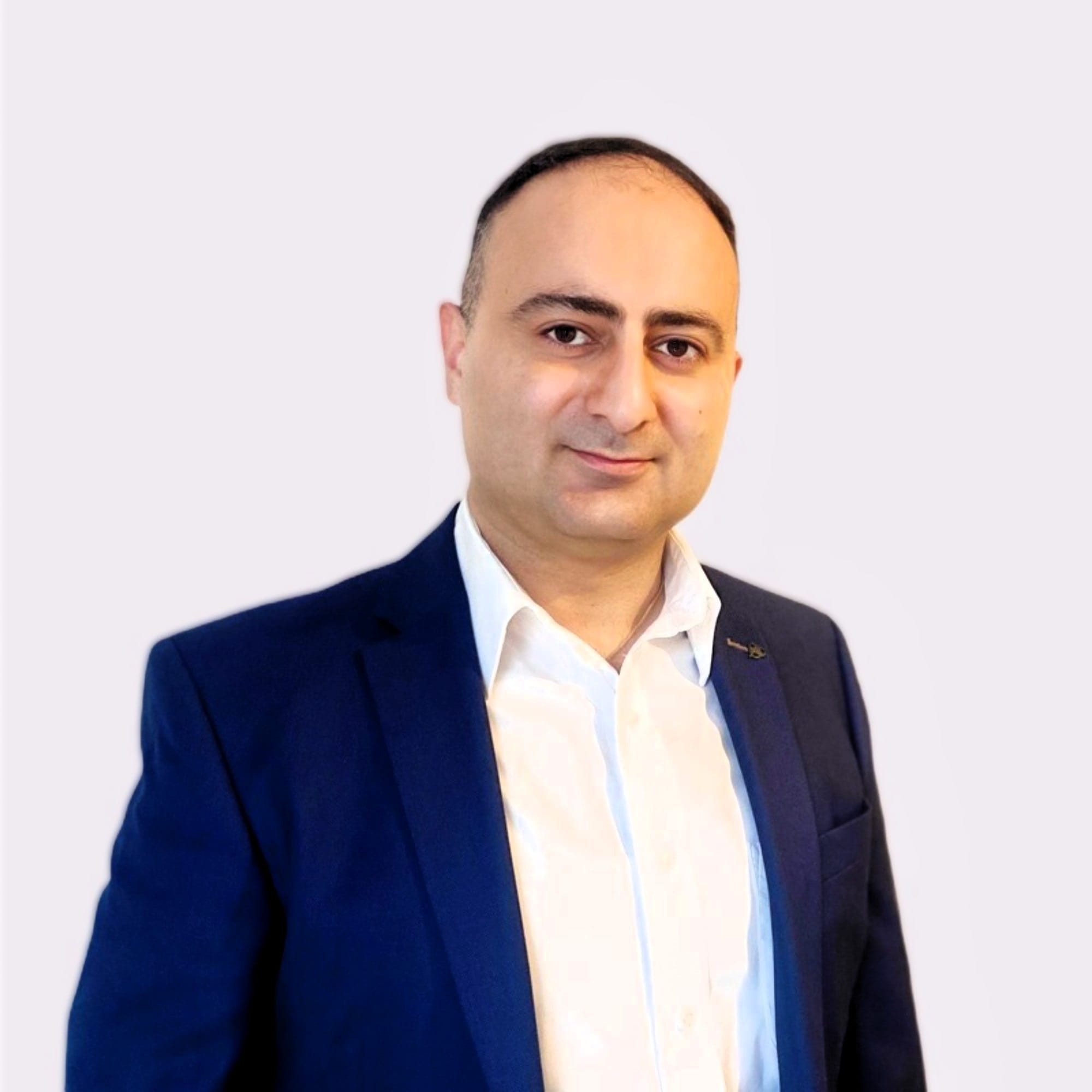
Hayk Sakeyan
Lead Project Leader – Sanctions Technology, Nordea
Hayk has over 20 years of experience in fintech and regtech, working with technology and compliance teams to deliver solutions across the banking industry. Currently, Hayk works as Lead Project Leader in the Sanctions Technology area at Nordea, where the focus is on improving sanctions screening and ensuring the bank stays compliant with global regulations.
Hayk is a Certified Global Sanctions Specialist(CGSS) and has been part of several major change programs that bring together business, IT, and risk teams to build better, technology-driven compliance processes.
In this training, he will lead a session on Sanctions Awareness, with a focus on how technology plays a key role in modern sanctions compliance - exploring how modern tools, automation, data quality, and system integration are reshaping the effectiveness and efficiency of sanctions controls in the financial industry.

Jan Westphal
Practitioner with over 13 years of experience in Anti-Money Laundering (AML), Know Your Customer (KYC), and Third-Party Risk Management
He manages content improvements for Enhanced Due Diligence (EDD) products at the London Stock Exchange Group (LSEG) Risk Intelligence Division. He is the author of articles on financial crime prevention, which are accessible to readers worldwide. On his portfolio website, he provides instructions for understanding AML requirements. He obtained the Certified Anti-Money Laundering Specialist (CAMS) certification in 2017. His educational background includes a degree in International Economic Relations and Finance.
Privately, he is an avid traveller who enjoys discovering new cultures on every occasion, particularly through backpacking and non-inclusive travel modes.
LinkedIn Profile: www.linkedin.com/in/jan-westphal-4b553787
Sample of Articles: https://www.linkedin.com/feed/update/urn:li:activity:7070028736636559360/ ; Customer Due Diligence Requirements

Natalia Woźniak
Law graduate of the University of Łódź Law and Administration Department. In banking for 8 years in different roles related to AML and sanctions
Currently International Compliance Organization certified Customer Sanctions Screening Process Governance Expert responsible for driving changes in the organization and implementation of improvements to sanctions/AML related processes.
In her career she has been a CSS subject matter expert involved in trainings of newcomers, conducting process related trainings and implementing changes.
AML/CTF and sanctions lecturer at University of Łódź.
Privately, a mother of a daughter, instrumental music and jazz enthusiast.

Krystian Zawadzki
Department of Finance at the Faculty of Management and Economics of the Gdańsk University of Technology
Director of postgraduate studies "Capital Investments and Personal Finance Management", coordinator of the Stock Exchange School, member of the Polish Olympic Academy. Author of nearly 100 publications covering, among others, the issues of investments and global financial markets.

Julia Zboina
Senior Specialist in CDD | Santander Digital Services Poland
Julia Zboina is a specialist in Anti-Money Laundering with extensive experience gained in leading international financial institutions. She began her career in AML in 2017, following several years of work as an English Teacher and translator, which equipped her with strong communication and analytical skills. Currently, she works as a Senior Specialist (Quality Checker) in Client Due Diligence Team where she ensures that CDD reviews are accurate, complete and compliant with internal policies as well as regulatory requirements. Previously, she held positions such as Senior AML Analyst at PWC Poland and KYC analyst at Refinitiv - Thomson Reuters Poland. Julia has an International Advanced Certificate in Anti-Money Laundering and earned her master’s degree in Management, Psychology in Business Studies.

Alicja Zbronska
An accomplished professional with a diverse background in finance, analytics, and knowledge management
Graduated from both the University of Gdansk and Gdansk University of Technology, holding an engineer degree in financial mathematics and a master’s degree in computer science and econometrics.
She has accumulated nearly 10 years of experience in the Anti-Money Laundering (AML) field. Over the years, she was involved in remediation projects for well-recognized financial institutions, transaction monitoring projects, and KYC projects, gaining extensive knowledge in this area. She is also a Certified Anti-Money Laundering Specialist (ACAMS), which has further enhanced her expertise in AML practices.
Currently, she specializes in knowledge management and training, creating procedures, collaborating with key stakeholders, and designing training materials. She has led global sessions for over 380 participants and facilitated interactive workshops for smaller groups, up to 15 people.
Her passion lies in bridging the gap between complex financial processes and effective communication.
English version below
Studia są realizowane przez 2 semestry, średnio co drugi piątek (w godz. 16.30 – 20.00) i sobotę (w godz. 8.30 – 16.00). Zajęcia rozpoczynają się, gdy zbierze się odpowiednio liczna grupa uczestników. Zajęcia odbywają się w grupie ok. 20 osób, na terenie PG lub online. Stosowane są aktywizujące metody kształcenia, np.: warsztaty, praca w grupach, case study, laboratoria z wykorzystaniem komputerów
Forma zajęć:
wykłady, ćwiczenia, warsztaty (maksymalizując liczbę zajęć odbywających się online, tzn. około 75% zajęć online i około 25% zajęć na uczelni).
Forma zaliczenia:
zadania, ćwiczenia, projekty grupowe, test, praca zaliczeniowa, końcowy test zaliczeniowy.
Warunki uczestnictwa:
- dyplom ukończenia studiów wyższych,
- znajomość języka angielskiego w stopniu komunikatywnym – zajęcia będą prowadzone wyłącznie w języku angielskim lub w języku angielskim i polskim.
Nabór:
Jest realizowany przez cały rok (decyduje kolejność zgłoszeń).
Cena:
3 800 PLN za semestr (istnieje możliwość wnoszenia opłaty w ratach). Studia trwają 2 semestry. Nie jest pobierana opłata wpisowa
Planowany termin rozpoczęcia:
Luty 2026
Podstawa wydania świadectwa:
praca/test zaliczeniowy oraz uzyskanie zaliczenia z wszystkich przedmiotów zgodnie z obowiązującym programem studiów.
Wymagane dokumenty:
- zgłoszenie na studia podyplomowe,
- oryginalny odpis dyplomu (który będzie do zwrotu po zakończeniu Studium),
- umowa – dostępna do podpisu w systemie po zarejestrowaniu się wszystkich uczestników.
O przyjęciu decyduje kolejność zgłoszeń.
The program is offered over two semesters, approximately every other Friday (4:30 PM – 8:00 PM) and Saturday (8:30 AM – 4:00 PM). Classes begin when a sufficient number of participants have gathered. Classes are held in groups of approximately 20 people, either on-site or online. Engaging learning methods are used, such as workshops, group work, case studies, and computer-based labs.
Class format:
Lectures, tutorials, workshops (maximizing the number of classes held online, i.e., approximately 75% online and approximately 25% on-site).
Assessment:
Assignments, tutorials, group projects, a test, a final paper, and a final test.
Requirements for participation:
- Higher education diploma,
- Communicative knowledge of English – classes will be conducted exclusively in English or in English and Polish.
Admission:
Enrollment is conducted year-round (first come, first served basis).
Fee:
PLN 3,800 per semester (payment in installments is possible). The program lasts two semesters. There is no registration fee.
Estimated start date:
February 2026
Basis for issuing a certificate:
a thesis/test and obtaining a pass in all subjects in accordance with the applicable program of study.
Required documents:
- application for postgraduate studies,
- original copy of diploma (which will be returned after the program is completed),
- a contract – available for signature in the system after all participants have registered.
Acceptance is based on the order of applications.
Aktualności aplikacyjne
- Termin rozpoczęcia I edycji: Luty 2026
- Zapraszamy!
Kontakt
Kierownik Studiów Podyplomowych
Kierownik studiów:
dr hab. Błażej Prusak, prof. uczelni
tel. 58 347 11 06
e-mail: blaprusa@pg.edu.pl
Zastępca kierownika:
dr inż. Sebastian Wilczewski
tel. 501 81 81 58
e-mail: swilczew@zie.pg.gda.pl
Sekretariat
mgr inż. Joanna Gryczka
tel. 58 347 19 22
e-mail: joanna.gryczka@pg.edu.pl
Referencje
Dlaczego studia na PG?